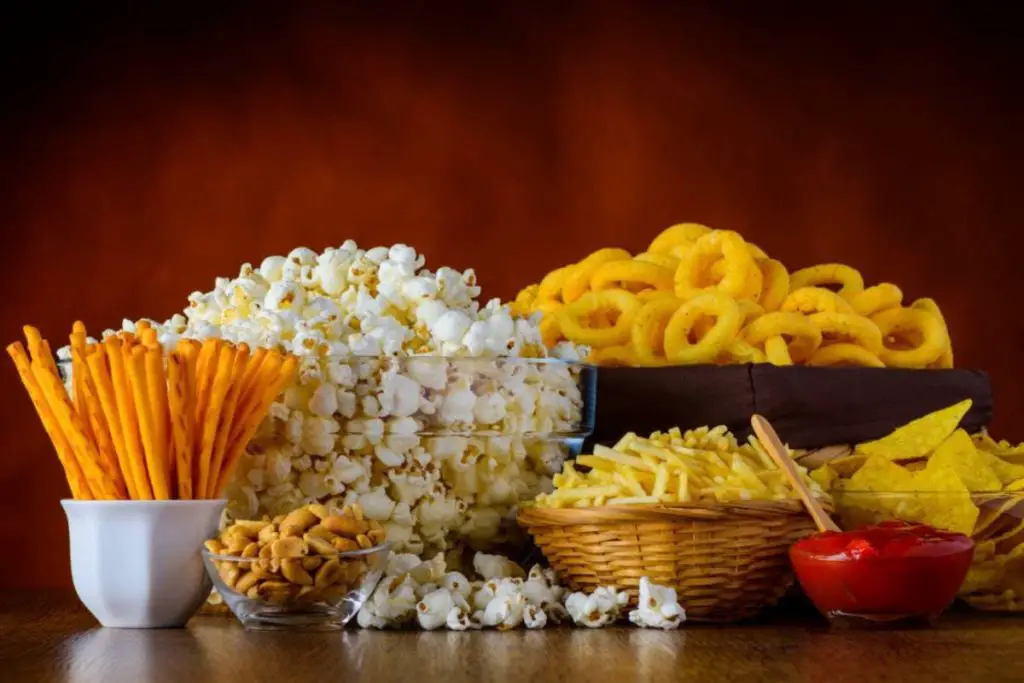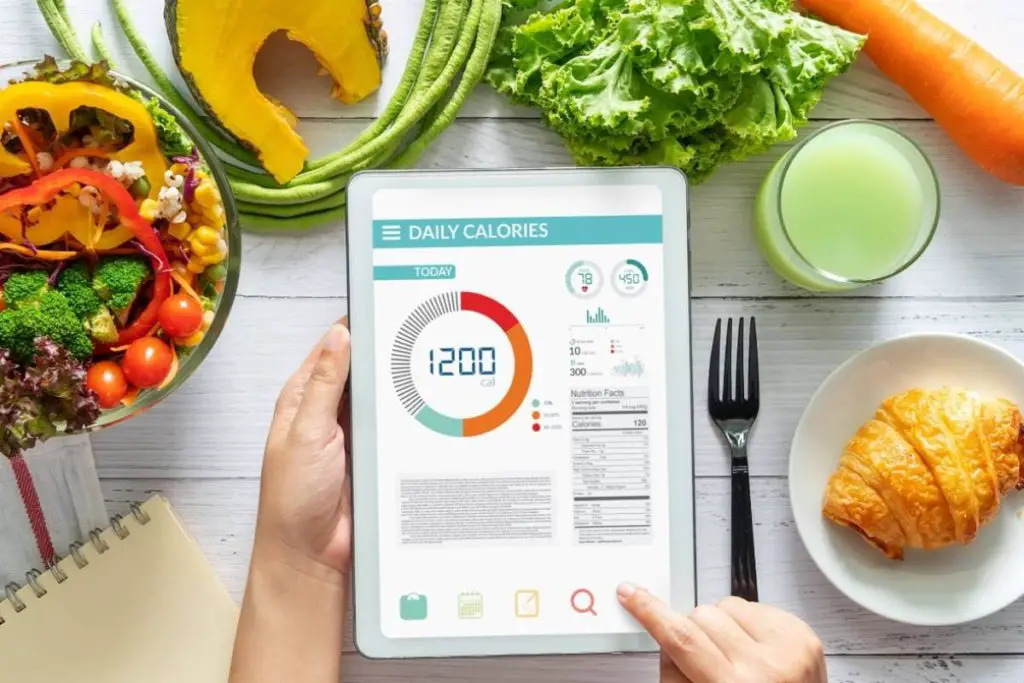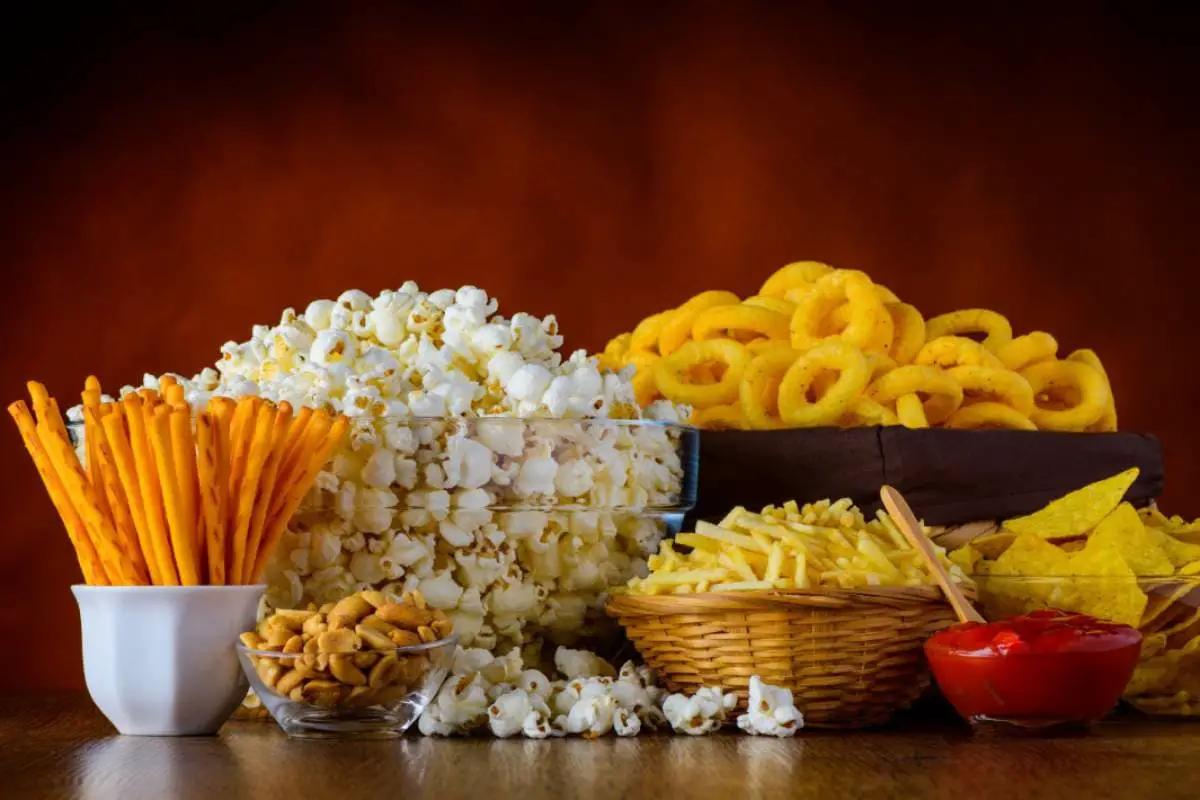Intermittent fasting is a fasting pattern that alternates hours of eating and hours of fasting with a few rules. The choice of what to eat after breaking the fast or in between is always a concern for many. Hence the question: Can you eat junk food during intermittent fasting?
You can eat junk food during intermittent fasting, provided it doesn’t exceed your daily calorie intake. The focus is on when you eat and not what you eat, allowing you to eat even junk food within a set period daily. The fasting method is also healthier than eating four to five times every day.
The rest of this article explains why you can eat junk food during intermittent fasting, the right amount to eat, and how to stop your cravings when it’s out of control. Let’s start with this:

Effects of Eating Junk Food During Intermittent Fasting
Purpose comes first in deciding what to eat during intermittent fasting. Most people fast intermittently to lose weight, which is why the practice is popular. If you are fasting for weight loss, then the permission to eat junk is one you should use cautiously.
Intermittent fasting is a cycle of eating and not eating for long hours (16-hour window). During the period, your body secretes more growth hormones and decreases insulin production. Both processes reduce fat tissues in the body and make you slimmer.
You can eat junk food when you break the fast, but if you overeat, you are working against your weight loss goals. Hence, you must be mindful while eating and ensure you don’t exceed your daily calorie intake.
It’s the same reason people add weight while fasting. When they break the fast, they are famished and overcompensate for the loss of calories with more calories than they should.
A bit of junk food won’t make you fat while fasting, but the excessive calorie intake will. So, the focus here is on the quantity, not the junk food. Consuming plenty of junk food at once is also detrimental to your body. It can reduce insulin sensitivity in your body.
The idea behind intermittent fasting is to control your calorie consumption since you can’t fast at a stretch.
If you’re fasting to discipline yourself, for religious purposes, or for any other reason besides weight loss, you can consume excessive amounts of junk food to recover lost calories. Most people need more calories than others, especially people with lesser body weight. However, there are other healthy ways to make up for the lost calories.
How to Control Junk Food Consumption While Intermittent Fasting
Mindful eating keeps your junk and calorie intake in check, but sometimes, it’s so delicious you can’t control it. You just indulge until you’ve gone past your daily calorie intake. Over-indulgence ruins your intermittent fast, and you’re back to where you started.
If you want to lose weight using intermittent fasting, you can eat junk foods but do so in moderation. Eat slowly and be mindful.
Count Your Calories
Mindfulness will ensure you don’t exceed your daily calorie intake. Eating slow and steady will make you get full faster than you would have when you rush the process.

If you’re uncertain about how many calories you should consume daily, use a calorie calculator. When you get your result from the calorie calculator, stick to it and don’t exceed your daily volume for any reason.
Follow A Fasting Schedule
Also, it’s easier to follow your calorie intake strictly when you fast with the 16:8 ratio. In this case, you fast for 16 hours and eat within the next eight hours. The other method is the 5:2 ratio, where you eat for five days and fast for two days in a week.
If you realize that you consume more food after fasting for two days, you can follow the 16:8 system, which is also healthy.
Create a Meal Plan
You can overcome this eating style by planning your meals. While intermittent fasting doesn’t limit you to any diet plan, having a meal plan is essential since you can’t control your cravings.
When you plan your meals, you avoid eating out during lunch. When you don’t plan (and stick to it), fast food becomes an option you can’t resist.
Planning your meals also helps you include healthier options in your diet. You can add food sources like; vegetables, protein, whole grains, fruits, and salads. These food categories in your diet combine to hasten your weight loss journey.
You have to avoid circumstances that will lead you to eat junk. Avoid outdoor activities that will lead you to fast food spots, limit your outdoor appearance, and focus on work to get your mind away from such cravings.
Get Familiar with What Junk Food Is
When you think about consuming junk food while fasting or after fasting, you must get familiar with its definition again. People may have different interpretations of what junk food is. Looking at its meaning again will help if you can’t control your cravings.
Junk food is a term used to describe pre-packaged and processed foods high in calories. They are foods with low nutritional value but rich in added sugars and saturated fats.
The results of eating junk food are more calories and less nutritional value. Your body needs healthy nutrition to thrive. Although you want to lose weight, you don’t want to be malnourished.
Thus, you can see why you shouldn’t eat too much junk food in one sitting, regardless if you’re fasting or not. When your goal is to lose weight, you must minimize the intake of junk or take it out of your meal plans entirely. Consistent consumption of junk food will scupper your weight loss goals.

Conclusion
It’s safe to take one bite out of that pizza or burger during intermittent fasting. However, when you over-indulge your cravings, you increase your calorie intake, which backfires by canceling your fast.
If weight loss is the goal, be mindful while eating junk food, and eat slowly. Also, remember never to go beyond your daily calorie intake limit and stick to a healthy diet plan. If you eat with the intent to recover all you’ve lost, you cancel out the benefits of fasting.

